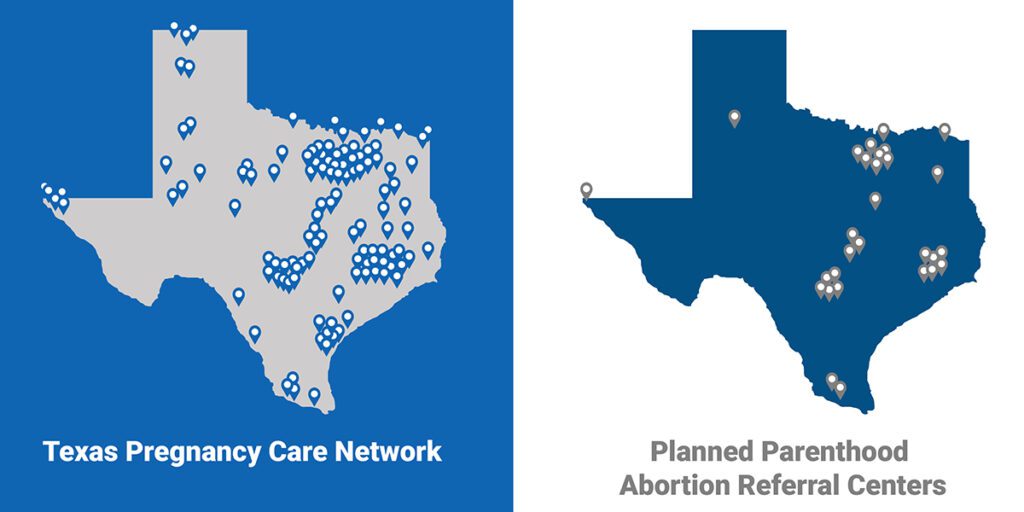Texas entered the Regular Session of the 88th Legislature in January with elective abortion fully illegal from the point of fertilization. Texas lawmakers had a historic responsibility to make the most of this first legislative session after the reversal of Roe v. Wade, but they chose to ignore new deadly threats to preborn children. However, this session did include an important reform to improve patients’ rights thanks to Chairwoman Stephanie Klick (R – Fort Worth).
As abortion groups launch evil and innovative campaigns in Texas to target preborn children, elected officials failed to address the scourge of illegal abortions and simultaneously underfunded the life-saving Alternatives to Abortion program.
Most legislators believed the delusion that pregnant women no longer consider abortion or need increased assistance for choosing Life now that elective abortion is illegal in Texas. Several bills were filed this session to give the Pro-Life movement stronger enforcement tools to respond to the lawless promotion of abortion-inducing drugs to Texans through illegal websites mailing them directly to women and trafficking networks bringing the drugs through our southern border (e.g. HB 2690, SB 1927). Elected officials’ negligence toward the unborn sets a dangerous precedent in our post-Roe world: overlooking the needs of women to help them choose Life and accepting lawlessness from abortionists.

Texas’ Alternatives to Abortion program is currently the largest and most successful state-funded resource in the nation that helps women choose Life. Nonprofit pregnancy centers, adoption agencies, and maternity homes can be reimbursed by the state for social services they provide to pregnant women and families before and after birth. Since the Supreme Court overturned Roe and Texas protected preborn children from elective abortion, these nonprofits have seen a 43% increase in demand for services. The Texas House of Representatives initially recognized this need and approved fully funding the program at $200 million for the next two years. However, in the final days of session, lawmakers reduced that proposed amount and failed to meet the demand and projected growth of the Alternatives to Abortion program. As a result, countless pregnant women may not receive the life-saving help they need and may instead feel pressured into seeking illegal or out-of-state abortions.

At the same time that elected officials underfunded Alternatives to Abortion, they passed legislation that could be used to water down the program’s unique Pro-Life mission. Lawmakers failed to sufficiently amend Senate Bill 24 to ensure that non-Pro-Life organizations do not divert Alternatives to Abortion funding. Although SB 24 was well-intentioned, Texas Right to Life is concerned that this bill allows the Texas Health and Human Services Commission to pivot the previously earmarked funding to services that do not directly benefit pregnant moms and new families. Thus, Pro-Life nonprofits could receive less funding next year because the program’s resources would be spread thinner among unrelated organizations. Texas Right to Life will continue to closely monitor bureaucratic changes to the program and enlist legislators to help prevent these concerns from coming to fruition when implementing this well-intentioned legislation.

Thankfully, the Legislature passed two bills to help college students who chose Life. Senate Bill 412 will codify federal protections for pregnant women and parenting college students into Texas state law, defending them from discrimination and adverse action. Meanwhile, Senate Bill 459 will require applicable colleges to offer early registration for academic courses to parenting students.
This session’s most notable victory, however, is a reform to protect hospital patients. House Bill 3162 by Chairwoman Stephanie Klick brought the most significant improvements to the Texas 10-Day Rule and the Texas Advance Directives Act in 20 years. Although additional changes to state law will still be needed, this policy will:
- Prevent hospital committees from making life-and-death decisions against a patient’s will based on discriminatory “quality of life” judgments;
- Prohibit hospitals from withdrawing life-sustaining treatment from competent patients against their will; and
- Require hospitals to perform procedures necessary to facilitate a transfer before imposing a countdown on a patient’s life.
While we are disappointed to see the state Legislature fail to address illegal abortions and fully provide needed resources for preborn children in the historic first session after Roe, we do remain hopeful for this new chapter of our movement. We will enlist Pro-Life advocates and legislators in the interim to help mitigate any negative changes to the Alternatives to Abortion program by encouraging our health commission to preserve the Pro-Life mission of this important state fund. Texas Right to Life will continue working with tens of thousands of Pro-Life Texans to hold elected officials accountable to the cause of Life.

